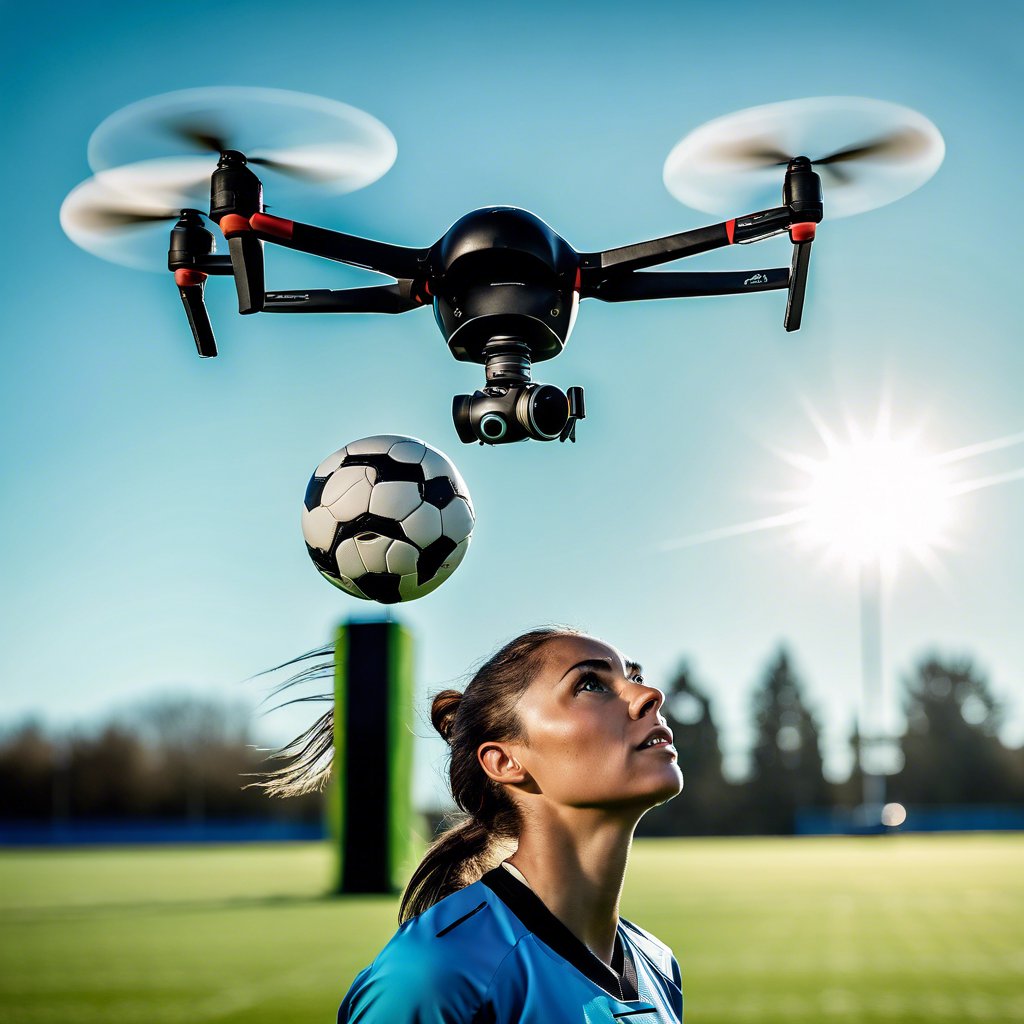Allegations of Drone Surveillance in Women’s Football
The national women’s football teams of France, Germany, and Zambia have firmly denied allegations of using drones to conduct surveillance on their opponents’ training sessions. This controversy stems from an internal email penned by Bev Priestman, the head coach of Canada, who has recently received a one-year suspension from FIFA. Priestman admitted to employing drone surveillance at the upcoming 2024 Paris Olympics and alleged that many top-ranked teams were utilizing similar covert methods.
In her email dated March 20, 2024, Priestman stated, “For scouting, it can be the difference between winning and losing, and all top 10 teams do it.” This claim prompted a strong response from several of the highest-ranked federations participating in the Paris Olympics, which include Spain, France, Germany, the United States Women’s National Team (USWNT), Japan, Brazil, Australia, Colombia, New Zealand, Nigeria, and Zambia.
The French Football Federation (FFF) responded by stating, “We only wish to state that the French Federation is never using any spying methods on the opponents’ teams. We also add that if the email does exist, we strongly reject these baseless accusations.”
Team Zambia also issued a statement through a spokesperson, declaring, “Team Zambia does not use drones to spy on our opponents. Our approach to match preparation relies on traditional methods of analysis and scouting.” The spokesperson further emphasized their commitment to ethical standards, saying, “We respectfully disagree with Ms. Priestman’s assertion that ‘all top 10 teams’ engage in such practices. Team Zambia maintains high ethical standards in our preparation and competition strategies. While we acknowledge the importance of thorough match analysis, we achieve this through legitimate means that do not involve unauthorized surveillance of other teams.”
The spokesperson concluded by reinforcing Team Zambia’s focus, stating, “Our focus remains on developing our players’ skills, teamwork, and tactical understanding through our dedicated technical bench and analysts. We believe in fair play and competing with integrity on the world stage.”
Meanwhile, the German national women’s team also denied the use of drones for spying on competitors, although they chose not to comment further on Priestman’s accusations. The other teams contacted, including Spain, the USWNT, Japan, Brazil, Australia, Colombia, New Zealand, and Nigeria, did not respond to The Athletic‘s requests for comments.
Teams such as England, Sweden, and the Netherlands, which were ranked in FIFA’s world top 10 at the time of Priestman’s email but are not participating in the Olympics, were also approached for comments. The English FA declined to provide an official statement but privately denied that their team employs drones in their match preparations. Sweden also dismissed the claims, while the Netherlands did not provide any response.
The incident escalated when New Zealand, set to face Canada in their first match in Paris, reported a drone flying over their practice session. Local police intervened after the drone was traced back to its operator, Joseph Lombardi, an “unaccredited analyst” linked to the Canadian women’s team, as stated by the Canadian Olympic Committee (COC).
As a result of this scandal, defending champions Canada faced severe penalties, including a deduction of six points in their Olympic qualification group and a hefty fine of £175,720 imposed by FIFA. Coach Priestman, alongside Lombardi and another official, Jasmine Mender, received one-year suspensions. Canada’s appeal to have the points deduction overturned was dismissed by the Court of Arbitration for Sport (CAS) shortly before they secured their qualification to the quarter-finals with a narrow 1-0 victory over Colombia. In Priestman’s absence, assistant coach Andy Spence has taken over the management of the team.
In a statement from Canada Sport, officials expressed their disappointment regarding the rejection of the appeal, affirming, “We continue to believe that our players should not have been unnecessarily punished for actions that were not their own.”
(Top photo: Alex Grimm – FIFA/FIFA via Getty Images)















